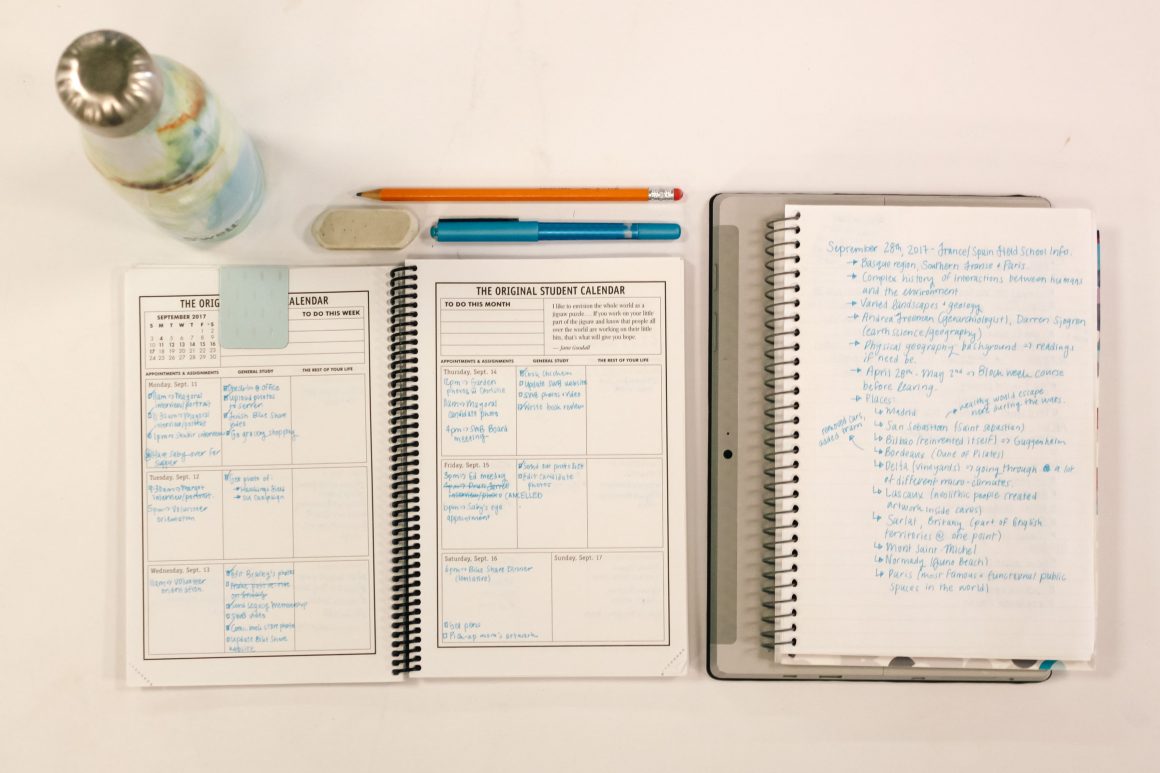
Develop time-management skills to increase productivity
By Christie Melhorn, October 18 2017 —
Balancing school, work and a healthy social life is a wobbly act that demands strong time-management skills. However, we are simply told this more often than taught how to achieve it. We know that day planners organize our lives, that we shouldn’t put off assignments and that one night out on the town a week is theoretically enough. But acting on this knowledge means adjusting our behavior to actually get shit done. The following tips can boost your productivity on a time-sensitive schedule.
Commit to your schedule:
Creating a schedule is one thing. Adhering to it is another. Most of us have promised to go out for only an hour and maybe have “a” drink. Then an empty wine bottle is sitting in front of you at 2 a.m. While it’s sometimes it’s worth the sacrifice, lost time can catch up with you negatively. A Red Bull-fueled night in the Taylor Family Digital Library takes more than a day to bounce back from, cutting into time you could spend finishing an assignment, hitting the gym or visiting with a friend.
Study efficiently:
Study in a space and at a time of day that feels right for you. Many students understandably prefer to study in the evening. However, Simon Fraser University student learning commons head Donna Lee Thompson says most people retain information more effectively in mid-morning and the afternoon. Of course, working on top of school can interfere with this. Study earlier when given the chance but crack into the books when you’re feeling most alert.
Listen to your body:
Avoid frying your brain and numbing your spine by studying in two- to three-hour time blocks throughout the day. Sitting longer than three hours restricts blood flow, inducing headaches and making you generally miserable. This is distracting and prolongs completing a task. Thompson suggests taking 30-minute breaks in between these study sessions. Even just going for a quick walk around campus can refresh your focus.
But sometimes, we’re the most productive when we enter that awesome work flow when time melts away. If you’re on a roll, embrace it — just listen to your body. Your aching back and rumbling stomach will tell you when it’s time to take a break.
Shed the guilt:
Effectively multi-tasking can be strangely addicting, making it difficult to reject another task or opportunity. Maybe a friend from out of town wants to spend the weekend with your or your boss desperately needs someone to work extra around midterms. Losing sleep and delaying an assignment for extra money or time with loved ones is worth it once in while. But when you start feeling drained, it’s time to set boundaries. Acknowledge any guilt that may accompany this but don’t feel pressured to taking on more than you can handle.
It’s likely you will burn out at some point in the semester and need a mindless Netflix night with take-out. That’s totally fair. Indulge in it. However, you can at least prevent the severity of the burn and its recovery time with a schedule that evenly blends work and play.
